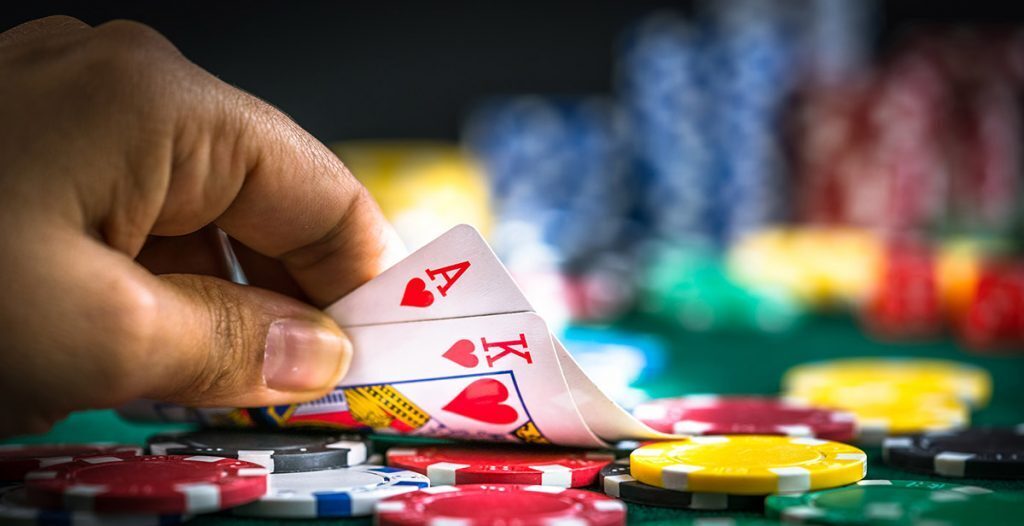It sounded crazy at the time but perhaps it’s the kind of thinking that made Andrew Beal a billionaire. Like millions of people, the Dallas tycoon loves online poker. Unlike most, he has the means to challenge the greatest poker players on the planet. And, for several years starting in the early 2000’s, that’s exactly what he did. He squared off with the likes of Doyle Brunson, Ted Forrest and Phil Ivey, three of the greatest ever and no strangers to insane action and the biggest games in the world. But that wasn’t the crazy part. No, he also wanted to raise the stakes as high as possible, so high the professionals would become uncomfortable and prone to mistakes. It was an unorthodox strategy designed to force the pros to play on scared money.
The Banker
Beal is a smart guy, with a knack for numbers, who accumulated his wealth in banking and real estate. The 67-year-old is also an amateur mathematician, a number theorist, known for the Beal Conjecture, in which he’s offered a $1 million standing prize for its proof or disproof. Given that background, it’s no wonder he likes to dabble in cards.
If Ax + By = Cz, where A, B, C, x, y and z are positive integers and x, y and z are all greater than 2, then A, B and C must have a common prime factor.
“He’s a very private person,’ says Michael Craig, author of The Professor, the Banker and the Suicide King: Inside the Richest Poker Game of All Time. It chronicles Beal’s epic high-stakes encounters with ‘The Corporation,’ a group of Las Vegas pros who had to pool their money together and share a bankroll in order to sit down with one of Forbes magazine’s 50 richest Americans.
“At first, I thought of him as reclusive but Andy’s definitely not reclusive. He’s a very nice, very friendly and outgoing person but he’s a private guy. He’s recognized that he can attain great success in life without needing to court public favour. He likes to fly under the radar in all his activities, whether it be banking, poker or his personal life. Once you get to about $15 billion that’s almost impossible. So, he’s had to make peace with the fact people are going to be interested in whatever he does. He usually politely declines interviews and tries to avoid being a controversial person.”
“Once you see Andy in competitive mode, you can see him upload the intelligence that’s lurking, some of it not even verbal, whether it’s a statistical, mathematical or analytical problem. Even though he’s a plain spoken person and friendly, you get the idea there’s a gigantic IQ back there and an inexhaustible set of resources to try and work things out.”
The Professor
Howard Lederer has won two World Series of Poker bracelets and is twice a champion on the World Poker Tour. He’s won millions playing cards, is known to fans as ‘The Professor’ and is the older brother of fellow professional Annie Duke, who finished second to Joan Rivers on Donald Trump’s The Apprentice. Lederer was a key member of the team that took on Beal.
“I think the person Beal had the most trouble with initially was Howard Lederer. Howard had a very analytical approach to the game and I think he may have been the first one to pick up on what Andy was doing, his approach and how to exploit it. He stayed away from Las Vegas after September 11, 2001, primarily because financial havoc caused by the terrorist attacks had changed his banking business so much he really had to get to work on the business of banking. When he returned in 2003 & 2004, Howard had some success against him but also recognized his game had improved quite a bit.”
The Suicide King
Did you know the King of Hearts, which holds a sword that appears to be put to his head, is referred to as the “Suicide King?” In Craig’s book the Suicide King refers to Ted Forrest, one of the best poker players ever, in all variants, both cash and tournament, and a 6-time WSOP bracelet winner. He won three of those championships in the same year, 1993.
“I think of him as the biggest gambler in the world. Whatever he’s got, he’s going to put it on the line. I found him to be a really nice guy and a great story teller. His stories generally centre on him getting involved in some kind of fix. He’s the same guy whether he’s up a million or down a million. I have always figured whether he’s up or down, in one direction or the other, he’ll get himself fixed up. He’s a great gambler with great instincts. On the other hand, the money doesn’t matter to him so he’s not out there to get ahead and then quit.”
The Game Dynamic
We all know poker is an individual game, so the idea of a billionaire banker playing on his own dime while taking on a team of pros with a shared bankroll created another interesting game dynamic. On top of the incredibly high stakes, peer pressure was brought into the equation.
Battle Won But War Over?
The Professor, the Banker and the Suicide King was published in 2005 but the games between Beal and ‘The Corporation’ carried on for years after its release. While the pros may have been bickering and playing on scared money, their skill and superior poker instincts won out in the end, thanks in large part to 10-time Phil Ivey, who is widely regarded as the best poker player ever.
“In 2007, well after my book came out , there was sniping back-and-forth between Beal and some of the players. He felt they hadn’t given him sufficient credit for his game. I don’t feel this was the case but these are competitive people. Although Andy had claimed he was done with poker, he got back into it and Phil Ivey became the go to guy. At the end of those games in 2007, Ivey had won $17.5 million in three days, not only wiping out the deficit the other players had accumulated but securing a $10 million profit as well.”


